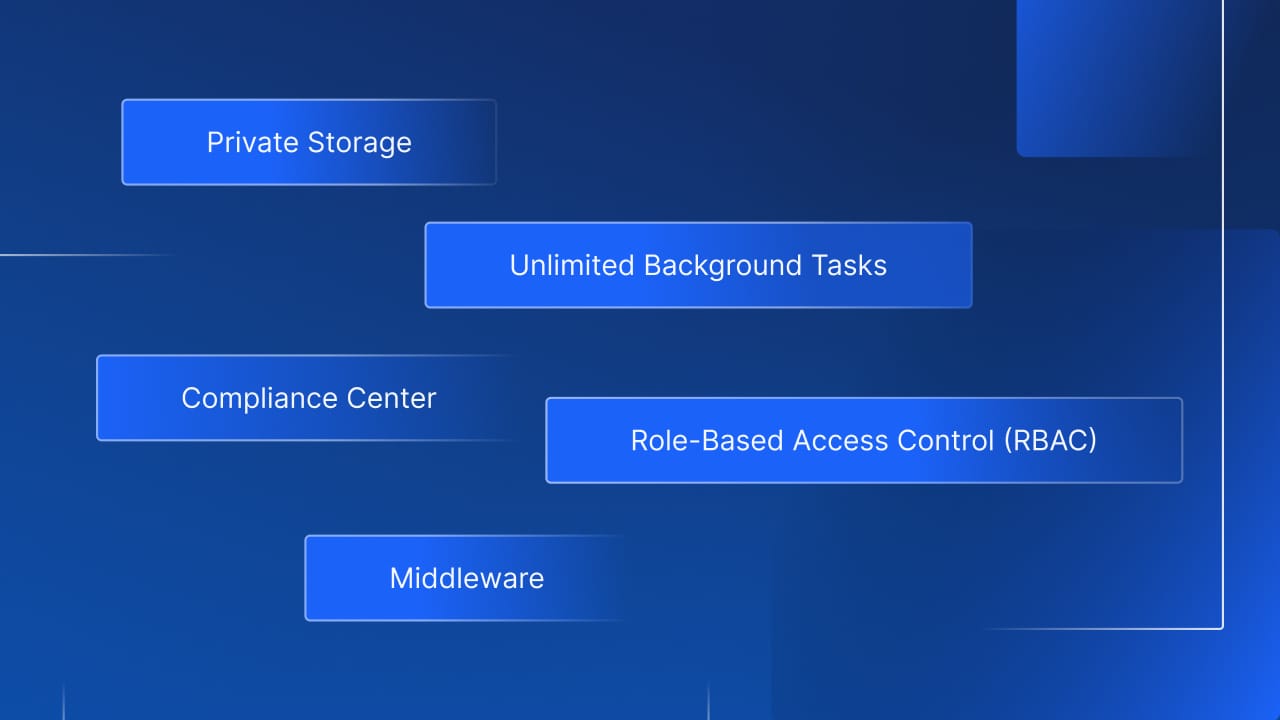ISO 27001 Compliance: Why It's Important
By Xano | January 24, 2022

The International Organization for Standardization (ISO) is a non-governmental body that provides technical, industrial, and commercial standards for government agencies and private companies. The ISO is run by a panel of experts and helps evaluate how an organization performs against competitors. The latest set of ISO standards is the ISO 27000 family of standards. While ISO compliance is typically not legally required, it can reflect well on your business and foster consumer trust. Below, we will go over the basics of ISO 27001 compliance and how to ensure your company meets ISO standards.
What Is ISO 27001 Compliance?
The ISO regularly publishes a set of requirements and recommendations for a company's security controls. The goal is to help companies better manage the inherent risks involved with data management and IT systems. To demonstrate compliance, you need thorough documentation of all your security policies and procedures.
Very broadly, ISO compliance means meeting the standards of what is called the “C-I-A” triad: confidentiality, integrity, and availability:
- Confidentiality: Only authorized users can access information stored in your company's databases
- Integrity: Only authorized users can alter information
- Availability: Information is readily available to authorized users whenever necessary
ISO 27001 Compliance: Why It's Important?
1) Helps With Legal Compliance
As previously mentioned, ISO 27001 compliance is generally not a legal requirement. However, meeting ISO's rigorous standards can help you achieve legal compliance with many other laws and regulations (like GDPR). Requirements for ISO compliance tend to overlap with many types of legally mandated security standards for various industries.
2) Customer Trust
Cybersecurity and cybercrimes have been in the news a lot lately. The more reassurance you can give your customers, the better. The ability to list ISO 27001 compliance among your company's accomplishments helps give customers peace of mind and feel more comfortable trusting your company with their information.
3) Meet International Standards
ISO 27001 is considered the de-facto international standard for cybersecurity. Meeting requirements, therefore, gives you a considerable competitive advantage, especially when doing business overseas. Some highly regulated sectors do require ISO compliance, effectively giving you a license to trade in these industries.
4) Improve Your Organization
Even if your organization has no real need to meet ISO standards, it can help improve internal processes. Becoming ISO compliant forces you to slow down and define processes and procedures. As a result, you'll streamline many day-to-day operations and function more efficiently.
How Do I Become ISO 27001 Certified?
ISO Compliance Standards
ISO 27001 guidelines provide 14 different domains that outline best practices for information and security management:
- Information And Security Policies
- Organization of Information Security
- Human Resource Security
- Asset Management
- Access Control
- Cryptography
- Physical And Environmental Security
- Operation Security
- Communication Security
- System Acquisition, Development, and Maintenance
- Supplier Relationships
- Information Security Incident Management
- Information Security Aspects of Business Continuity Management
- Compliance
To be ISO compliant, you need to make sure your entire company – not just the IT team – carefully looks at all 14 of these areas to ensure you're meeting ISO requirements. You should also seek assistance from an outside group to conduct security tests and provide suggestions on potential security improvements.
Conducting An Internal ISO 27001 Audit
The first step to meeting the above requirements is a thorough internal audit in which you compare your security practices to practices recommended by the ISO. An audit usually entails five steps and may take several months to complete.
Documentation Review
Review all documentation related to your current information security management. This helps you identify areas where there is room to improve to achieve ISO 27001 compliance.
Management Review
Have a meeting with management to talk over the logistics of achieving compliance. You need scheduling, budgeting, and resource allocation before beginning the process.
Field Review
Take a more thorough look at how your current processes work. During this part of the audit, you need to conduct tests, record results, and compare them to ISO standards. We recommend bringing in a third-party security expert for this part of the process.
Analysis
Analyze the results of all the evidence you have collected so far. Determine what gaps need to be filled and identify any serious security risks in your organization.
Report
Draft a thorough report that includes the results of any studies and actionable recommendations for improving security measures.
Once you complete your audit and subsequent security improvements, you need to write a series of mandatory documents. These outline the physical, digital, and human resource security controls your organization employs. Again, we recommend enlisting the assistance of a third-party expert with experience ensuring ISO compliance.
Certification
To become officially ISO 27001 certified, you must pass an external audit. ISO does not perform certification themselves. Accredited external certification bodies perform your audit and subsequently provide your company with its certificate.
ISO 27001 Certification: The Bottom Line
While most industries do not legally require ISO 27001 compliance, becoming certified comes with a litany of advantages. From improving consumer trust to meeting international security standards, ISO 27001 certification is one of the best things you can do for your business.
Looking for solutions for your company? Xano is the fastest No Code Backend development platform on the market. We give you a scalable server, a flexible database, and a No code API builder that can transform, filter, and integrate with data from anywhere. Sign up here to get started.
The post ISO 27001 Compliance: Why It’s Important appeared first on Xano.

















